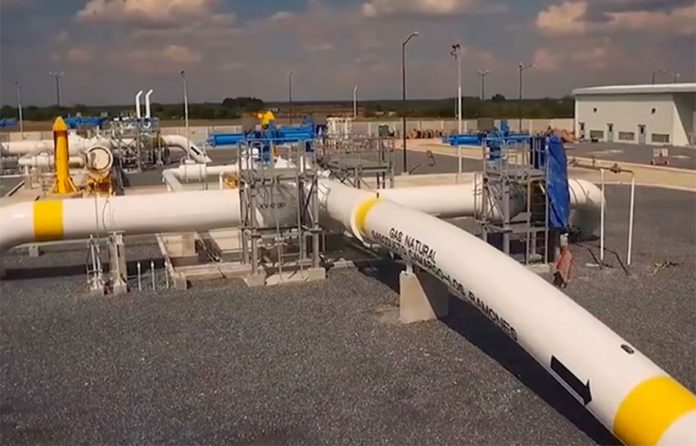The federal government and the state-owned Federal Electricity Commission (CFE) must shoulder part of the blame for the natural gas shortage that has plagued the country this week and caused a major power outage in northern Mexico on Monday, according to two energy sector analysts.
The government’s decision to halt projects planned by the previous administration along with its ignorance of the need for greater gas storage capacity and its failure to increase electricity transmission capacity contributed to the blackout that left some 4.7 million residents without power on Monday, said two analysts who spoke to the business news website El CEO.
The government and the CFE have attributed the blackout to the extreme cold snap in the United States that froze pipes and caused gas prices to soar but the analysts argue that Mexico should have been better prepared for the possibility of supply interruptions.
“There is a series of self-inflicted problems,” Rosanety Barrios said. “There was a large-scale natural gas storage project and they canceled it. The five-year plan that the National Gas Control Center [Cenagas] presented [in 2018] … was rejected.”
One of the canceled projects was a floating storage regasification unit planned for Pajaritos, Veracruz. Pemex issued an international invitation to tender for the project in 2018 and was due to select a winner in February 2019. But under the current federal government, which took office in December 2018, Cenagas was given responsibility for the project and promptly canceled it.
Had it gone ahead, Mexico would have had additional daily storage capacity of 600 million cubic feet of gas since the start of last year, the newspaper Reforma reported. That capacity could have helped to alleviate the gas shortages Mexico has faced this week.
Another 10-billion-cubic-feet-per-day gas storage project slated for Veracruz was canceled in May 2020.
The government’s cancelation of new rounds of oil and gas block auctions initiated by its predecessor was another of the self-inflicted problems cited by Barrios. The auctions were designed to reduce Mexico’s dependence on natural gas imports by selling off blocks to private companies but the government nevertheless stopped them, she said.
President López Obrador is determined to cut Mexico’s reliance on fuel imports but he wants state-owned companies, not private ones, to take the lead.
Barrios noted that the previous government created conditions that allowed renewable energy companies to make a greater contribution to Mexico’s energy mix but the López Obrador administration has adopted a hostile attitude toward the sector and is seeking to sideline it in favor of the CFE.
“They’ve been blocking the [different] options that Mexico has, especially with this preferential initiative that seeks to block private investment,” the analyst said.

She questioned why the government is blocking such investment when it doesn’t have money of its own to invest in the electricity sector.
“It’s clear that the government doesn’t have resources to invest in the Mexican electricity system. It’s not me saying it, the federal budget says it,” Barrios said.
Víctor Ramírez, another energy analyst, said that greater transmission capacity in the national grid could have provided greater resilience in the electricity system when the gas supply interruption began. He added that a lack of transmission capacity is a longstanding problem.
“There has been a lack of transmission development. Some of the lines that had problems due to overflow in the early hours [of Monday] are lines that should have been reinforced. It’s something that this government neglected to do as well as the previous government,” Ramírez said.
The CFE has largely managed to restore electricity supply after Monday’s blackout by using its own resources including fuel oil and coal to ramp up generation, although it was forced to cut power temporarily in many parts of the country on Tuesday to reduce pressure on the national system.
However, Mexico remains vulnerable to further major outages while it continues to depend heavily on natural gas imports, which are used to generate a large percentage of the country’s energy and supply private manufacturing companies, some of which were forced to halt production this week.
For now, natural gas flows from Texas appear to be normalizing even though Texas Governor Greg Abbott placed a temporary ban on the fuel leaving the state to ensure power generators there have sufficient supplies amid the cold weather the state is experiencing.
The website Natural Gas Intelligence reported that scheduled deliveries of piped gas from Texas to Mexico increased to 1.6 billion cubic feet per day (Bcf/d) on Thursday from 1.3 Bcf/d on Wednesday and 1.1 Bcf/d on Tuesday. Export volumes from Texas to Mexico typically exceed 2 Bcf/d.
Although shipments have declined this week “there are still significant gas flows into Mexico,” said Matthew Lewis, senior director of research at East Daley Capital Advisors, a Colorado based provider of oil sector data.
